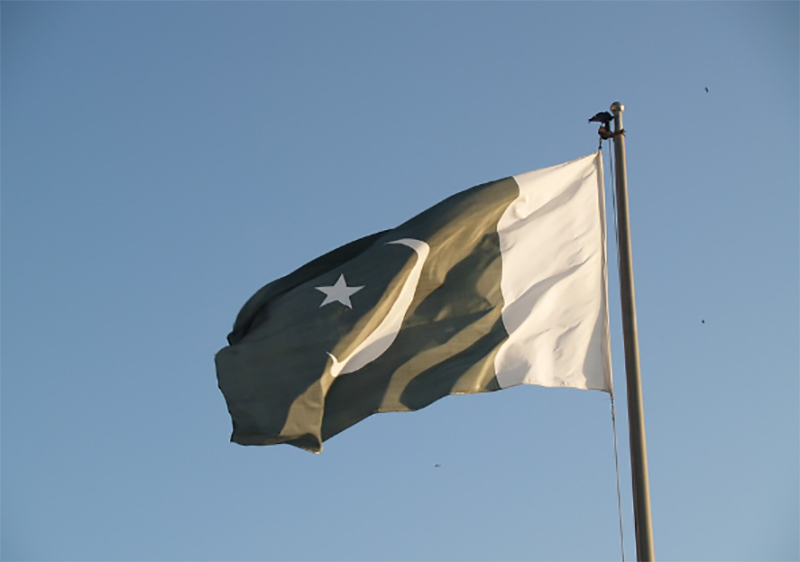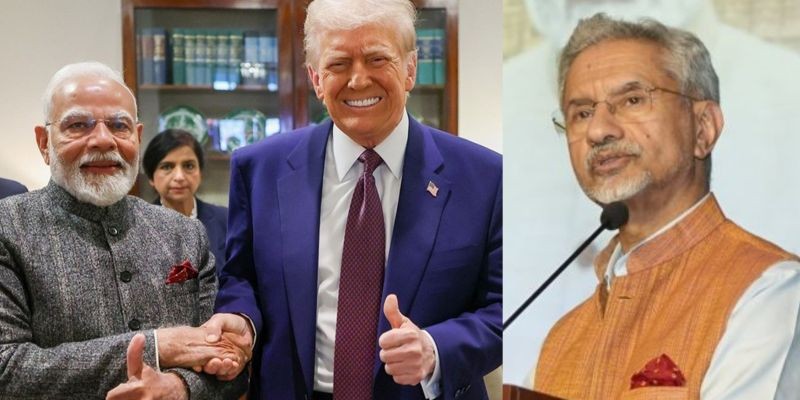The Curse of Frankenstein

We did not need to make Mujahideen. We created Mujahideen and then they became terrorists - Federal Interior Minister Rana Sanaullah while addressing the Senate on January 31, 2023.
On January 30, 2023, at least 84 persons were killed and another 220 were injured in a suicide blast inside a mosque in the Police Lines area of Peshawar, the provincial capital of Khyber Pakhtunkhwa (KP).
The suicide attacker, who was in Police uniform, was present in the front row during the Zuhr prayer (second prayer offered at noon).
The Capital City Police Officer (CCPO), Peshawar, Ejaz Khan, disclosed that around to 300 to 400 Policemen usually offered Zuhr prayers at the venue.
Two Tehreek-e-Taliban Pakistan (TTP) leaders, Sarbakaf Mohmand and Omar Mukaram Khurasani, claimed that the attack was “revenge” for the death of the chief of TTP’s splinter group, Jamaat-ul-Ahrar (JuA), Khalid Khorasani, in the Barmal District of Paktika Province of Afghanistan on August 7, 2022. However, TTP central ‘spokesman’ Muhammad Khorasani denied any involvement in the attack.
“Regarding the Peshawar incident, we consider it necessary to clarify that Tehreek-e-Taliban Pakistan has nothing to do with this incident. According to our laws and general constitution, any action in mosques, madrasas, funerals grounds and other sacred places is an offence,” Muhammad Khorasani declared in a statement.
On January 27, 2023, three Army personnel were killed and several others injured when the Baloch Liberation Army (BLA) targeted an Army base from three directions near the Dandaar area of Kolwah town in the Awaran District of Balochistan. BLA ‘spokesman’ Jeehand Baloch claimed responsibility for the attack. "BLA will continue to intensify its attacks against the occupying forces till their full withdrawal from Balochistan", Jeehand Baloch added.
On January 19, 2023, three Police constables were killed in a suicide attack at the Takhta Beg Police checkpost in Jamrud tehsil (revenue unit) of Khyber District in KP. Police said terrorists armed with hand grenades, entered the premises and opened fire using a sub-machine gun. After the firing, a suicide bomber blew himself up. The TTP claimed responsibility for the attack.
On January 14, 2023, three Policemen, including Deputy Superintendent of Police (DSP) Badaber Sardar Hussain and his two Police guards, Irshad and Jehanzeb, were killed in a terrorist attack on the Sarband Police Station in Peshawar. KP Inspector General of Police (IGP) Moazzam Jah Ansari stated that sniper rifles were used by the terrorists in the incident, for the first time in Peshawar. TTP claimed responsibility for the attack.
According to partial data compiled by the South Asia Terrorism Portal (SATP), Pakistan has recorded 182 terrorism-related fatalities, including 132 Security Force (SF) personnel, 44 terrorists and six civilians, so far, in the current year (data till February 5, 2023). During the corresponding period of 2022, the province recorded 96 such fatalities, including 38 Security Force (SF) personnel, 37 terrorists and 21 civilians.
Meanwhile, overall terrorism-linked fatalities in Pakistan in 2022 had surged to 971 [229 civilians, 379 Security Force (SF) personnel and 363 terrorists], from 663 (214 civilians, 226 SF personnel and 223 terrorists) in 2021, an increase of 46.45 per cent. Reversing the declining trend in Pakistan between 2015 and 2019, overall fatalities have been increasing since 2020. With the return of the Taliban in Afghanistan on August 15, 2021, terrorism has increasingly been spilling over into Pakistan.
There were 365 incidents of killing in 2022, as compared to 267 in 2021. 113 incidents in 2022 were major (each resulting in three or more fatalities), in which 626 persons were killed (127 civilians, 235 SF personnel and 264 terrorists). There were 88 major attacks (417 fatalities: 140 civilians, 113 SF personnel and 164 terrorists) in 2021. Out of 113 major incidents in 2022, there were 13 suicide attacks resulting in 109 fatalities, including 79 civilians, 17 SF personnel and 13 terrorists. There were only four suicide attacks in 2021, resulting in 25 fatalities, including 15 civilians, six SF personnel and four terrorists.
Other parameters of violence also indicate a worsening security situation in the country. There were 151 incidents of explosion in 2022, resulting in 247 fatalities, including 124 civilians, 98 SF personnel and 25 terrorists. The number of explosions reported in 2021 was 110, resulting in 165 fatalities, including 97 civilians, 62 SF personnel and six terrorists.
Among the principal reasons for the spike of violence in Pakistan in 2022 were the re-grouping of the TTP in August, 2020, and the capture of the Afghanistan Government by the Taliban in August 2021.
The Taliban’s seizure of power in Kabul strengthened the TTP, giving them the courage and wherewithal to return to tribal areas of Pakistan, which they had fled during Operation Zarb-e-Azb [Sword of the Prophet] in 2014.
Despite the fact that the Pakistan-bred and supported Haqqani Network was a dominant power, and was at the helm of the Ministry of Internal Security, in Afghanistan, TTP has made deep inroads into the tribal areas of Pakistan.
Any doubts that TTP and the Afghan Taliban are ideological twins have now been squarely removed. During an interview with on July 26, 2021, TTP ‘chief’ Noor Wali Mehsud asserted that his group had a ‘good relationship’ with the Afghan Taliban and hoped to benefit from the latter’s victories in Afghanistan. He further warned that TTP would continue its “war against Pakistan’s security forces” and declared that the outfit’s goal was to “take control of the border regions and make them independent.” This was the first time that TTP’s leadership called for an independent state to be carved out of Pakistan’s tribal areas.
Instead of taking strong actions against TTP, and despite the fact that the group had stepped up attacks in the Province, the Pakistan Government, sought to negotiate with the outfit with the help of the Taliban.
As a result, both sides agreed on a month-long ceasefire between November 9 – December 9, 2021. On December 9, 2021, however, TTP declined to extend the ceasefire with the Government, alleging that the state forces had not only failed to implement the decisions reached between the two sides.
The SFs had conducted raids in Dera Ismail Khan, Lakki Marwat, Swat, Bajaur, Swabi and North Waziristan, killing and detaining many TTP fighters. TTP consequently declared, “Under these circumstances, it is not possible to extend the ceasefire.” Mufti Noor Wali Mehsud announced an end to the ceasefire and asked his fighters to resume attacks.
There is, moreover, adequate evidence to indicate that the ceasefire was just a deceitful move by TTP to buy time and to revitalise its cadres. The Pakistani Government fell into the trap and released more than 100 TTP prisoners as a “goodwill gesture,” in response to the TTP’s acceptance of the ceasefire. During the month-long ceasefire, though five SF personnel were killed in three terrorism-related incidents, no TTP terrorist was killed.
After the collapse of the ceasefire, the TTP resumed its attacks against SFs. At a time when the TTP increased its attacks on SFs, the Imran Khan led PTI-Government in Islamabad sought to buy an improbable peace. A 10-day ceasefire agreement, starting May 1,2022, was reached between the Army and the TTP on the account of Eid (May 2, 2022). On May 10, TTP announced that the ceasefire was extended by another five days and stated that new directives would be issued on May 16. Though no announcement was made on May 16, on May 18, TTP announced that the ceasefire had been extended till May 30.
Under the auspices of the Afghan Taliban, talks commenced between committees of the TTP and the Government of Pakistan. However, sporadic violence continued from both sides.
Eventually, however, on November 28, 2022, TTP announced an end to the then seven month-long ceasefire, declaring, in a statement released on Umar Media (TTP’s official website), that TTP’s ‘Minister of Defence’ had “ordered” TTP forces throughout Pakistan “to launch attacks anywhere in the country” in response to Pakistani military operations.
The outfit claimed that it chose to end the ceasefire after “the Army and intelligence agencies continue to raid and attack” its forces. “And now our revenge attacks will continue in the whole country,” the TTP statement added.
As ‘official’ talks between the TTP and the Government collapsed with the TTPs declaration of an end to the ceasefire, an escalation of violence in KP and other areas of Pakistan was inevitable.
In 2022, the Khyber Pakhtunkhwa Province, which was the most affected by the TTP resurgences, recorded the highest fatalities in a year since 2014. KP recorded a total of 527 fatalities (119 civilians, 173 SF personnel and 235 terrorists) in 184 incidents of killing in 2022, as against 300 such fatalities (71 civilians, 108 SF personnel, and 121 terrorists) in 129 such incidents in 2021, registering an increase of 75.66 per cent in overall fatalities. In terms of SF fatalities, the 2022 tally was the highest since 2013, when there were 181 SF fatalities. Terrorist fatalities in 2022 were the highest since 2011, when there were 372 such fatalities. The number of civilians killed in 2022 touched three digits after a gap of five years, with 122 civilians killed in 2016. Other parameters of violence also indicated a worsening security situation in the Province.
The ceasefire and peace-talks between the Government and TTP gave the terrorists space and time to find their feet in KP. An October 12, 2022, report suggested that the TTP had re-emerged violently in the restive Swat region. Earlier, an August 12, 2022, report noted that TTP militants had established a check-post at Balasoor Top, besides roaming about freely in other areas of the Matta tehsil of Swat. Significantly, the Geo News correspondent in Swat, Mehboob Ali, claimed that at least 200-250 TTP terrorists were present and operating in the area. Other bordering Districts of the Province had also seen increased terrorist activities. After analysing the overall law and order situation in KP, the Police department declared South and North Waziristan, Lakki Marwat and Bannu Districts, terrorist ‘trouble spots’.
On December 27, 2022, Federal Interior Minister Rana Sanaullah disclosed that there were around 7,000 to 10,000 TTP fighters in the region, and they were accompanied by 25,000 members of their families. This statement was later confirmed by former Prime Minister Imran Khan who, on January 10, 2023, revealed that his government had planned to resettle TTP militants in the erstwhile Federally Administered Tribal Areas (FATA), with the help of the Afghan Taliban. Imran Khan stated that the fall of Kabul and the rise of the Afghan Taliban to power provided Pakistan with a ‘golden opportunity’ to deal with the TTP threat. “The Afghan Taliban pressurised the TTP, which had over 5,000 fighters among its 40,000-strong group, to go back to Pakistan and we took a number of steps to deal with it,” he added.
On February 1, 2023, immediately after the Peshawar Police Lines Mosque suicide attack of January 30, Prime Minister Shehbaz Sharif accused, the Imran Khan led PTI Government for bringing about the resurgence of terrorism in the country. Targeting Imran Khan, he questioned, “Who regarded the terrorist as ‘jihadi’ and let them return?” In his remarks at a meeting of the Federal Cabinet, the Prime Minister argued that PTI had been ruling the KP for the past 10 years and was responsible for the safety of the lives of the innocent people of the province, who were suffering under the new spate of terrorist incidents.
After KP, the most affected province in Pakistan was Balochistan, in terms of terrorism related fatalities. Balochistan recorded a total of 406 fatalities (88 civilians, 202 SF personnel and 116 terrorists) in 160 incidents of killing in 2022, as against 308 such fatalities (111 civilians, 107 SF personnel, and 90 terrorists) in 111 such incidents in 2021, registering an increase of 31.82 per cent in overall fatalities. In terms of SF fatalities, the 2022 tally is the highest since the SATP database started documenting fatalities in Pakistan.
The escalating attacks on SFs in Balochistan are substantially a consequence of the continuing frustration among Baloch nationalist groups over the systematic extermination of ethnic Baloch through enforced disappearances and extrajudicial killings by Pakistan security agencies, in addition to the persistent neglect of the basic needs of the population.
The annual report released on January 12, 2023, by Paank, the human rights organization of the Baloch National Movement (BNM), claimed that Pakistani forces in Balochistan forcibly disappeared 629 persons, extra-judicially killed 195, and tortured 187 people in 2022. 187 forcibly disappeared people were released from the torture cells of the Pakistani Army.
Under the Universal Periodic Review process at the United Nations Human Rights Council (UNHRC) in Geneva on January 30, 2023, member states called on Pakistan to stop enforced disappearances and other human rights abuses and demanded the protection of people.
Though the over-all security situation in Sindh remains relatively calm, echoes of the Baloch insurgency reverberated in Karachi, the provincial capital of Sindh and commercial capital of the country, when Baloch Liberation Army (BLA) female Fidayeen (suicide cadre) Shaari Baloch aka Bramsh, from the Majeed Brigade (BLA’s suicide bomber squad), blew herself up near a van transporting Chinese nationals from a Karachi University (KU) hostel to the Confucius Institute, on April 26, 2022. Five persons, including three Chinese nationals, their Pakistani driver and a security guard, were killed.
Apart from this attack, terrorism-related incidents were at an all-time low in Sindh, with just 21 fatalities in 12 incidents recorded in 2022. Fatalities in 2021 totalled 28 in 13 incidents. The highest terrorism-related fatalities in the province were reported in 2013, when there were 1,656 such deaths.
However, street crime remained a major headache for the security establishment in Karachi, with as any as 85,000 incidents of armed street robberies recorded in the city in 2022.
This was disclosed by Sindh Chief Minister, Syed Murad Ali Shah, on January 5, 2023, while chairing the meeting of the Apex Committee during a mention of the crime data compiled by the Citizens Police Liaison Committee (CPLC).
Over 100 persons lost their lives in these incidents, while more than 400 citizens suffered injuries. In 2021, Karachi recorded over 73,000 armed street robberies, resulting in the killing of 69 citizens and injuries to another 418.
The Punjab Province recorded the lowest number of terrorism-related fatalities in 2022. According to partial data compiled by the SATP database, Punjab recorded just 11 terrorism-linked fatalities in 2022, including 10 civilians and one terrorist, as against 20 fatalities, including nine civilians, six terrorists and five Security Force (SF) personnel in 2021. However, the threat of terrorism in the province is far from over, with the year 2023 starting on a violent note, as one TTP terrorist shot dead two Inter-Services Intelligence (ISI) officers posted in the Punjab Counter Terrorism Department (CTD) at a roadside restaurant on the National Highway, near Pirowal in Khanewal city (Khanewal District), on January 3. TTP ‘spokesman’ Mohammad Khorasani, in a statement to the media, stated, “Yesterday, a secret squad of TTP killed ISI Deputy Director Multan, Naveed Sadiq, along with his colleague Inspector Nasir Butt, at Bismillah Highway in Khanewal district of Punjab”.
While mainstream Islamist extremist groups took a back seat, blasphemy allegations continued to occur in the Punjab, as radicalisation remained rampant.
While two incidents of blasphemy were reported in 2021, resulting in the death of one of the accused, 2022 recorded three blasphemy related incidents, with three of the accused done to death.
Religious minorities in Punjab have long been under constant threat of abuse, abduction, rape and harassment by Islamist extremists.
The abduction of minority girls for rape and forced conversion continues unabated in the province. According to a report titled “Conversion without Consent” released by Voice for Justice and Jubilee Campaign on December 10, 2022, as many as 100 cases of abduction, forced conversion, forced and child marriage of girls and women belonging to the Christian community, have been recorded between January 2019 and October 2022 in Pakistan.
While terrorism has declined sharply in Punjab and Sindh, insurgent and terrorist violence has escalated in the border provinces of KP and Balochistan. The Pakistan state and security establishment have been busy with the blame game over the deteriorating security situation, even as the likelihood of terrorism once again spilling over into the rest of Pakistan increases dramatically.




